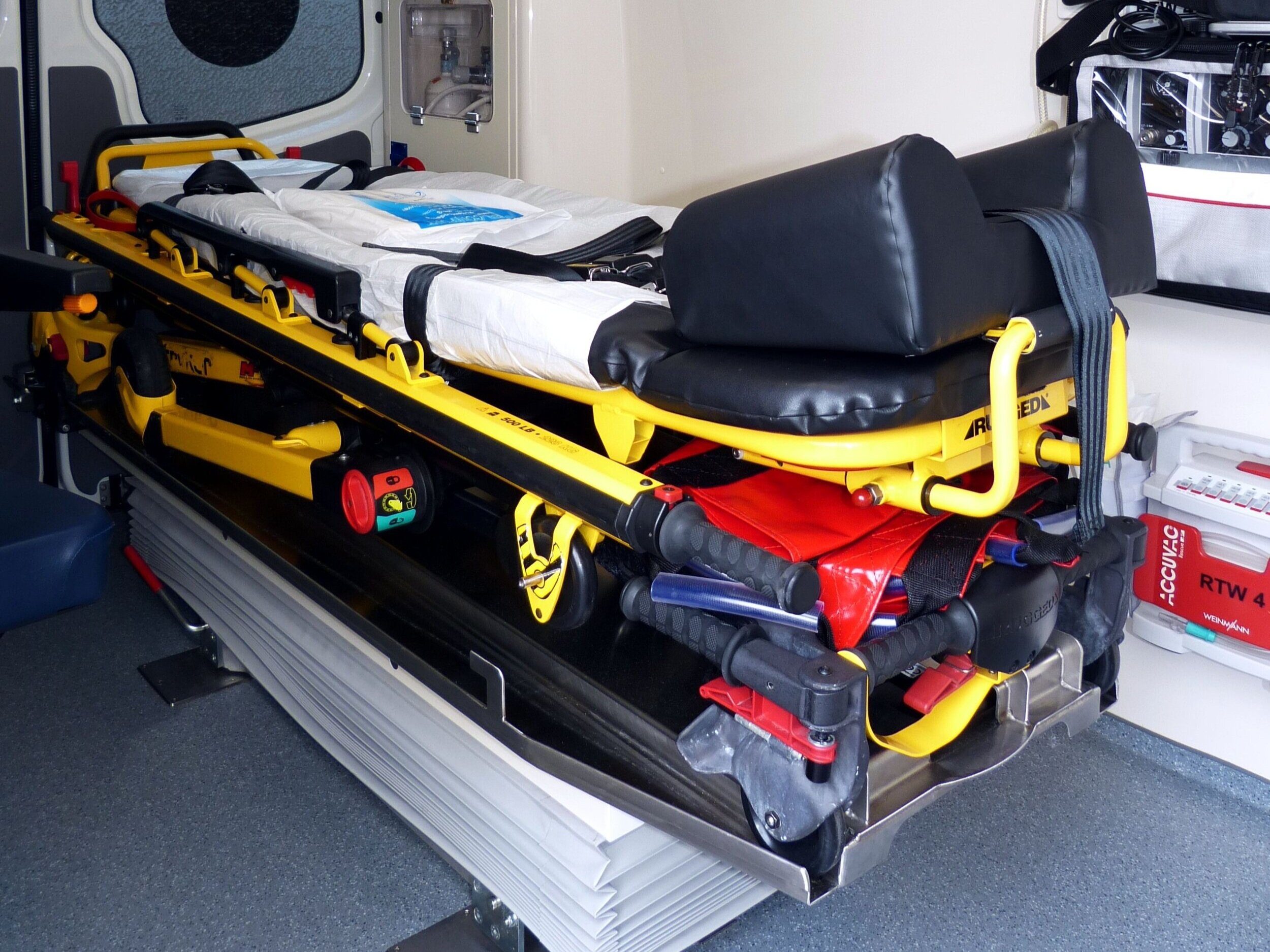Updated August 27, 2021
what questions should I and my family be asking?
Do I know who and how to call for an ambulance or family for emergencies?
Do I have an emergency contact on my record such as a family or friend that can be called if needed?
Do I have any questions for the ER nurse or doctor to help me understand what’s going on?
What are they treating me for? What tests are they sending me for?
Have I been going to the ER often? Do I need to reassess my goals and values regarding my health?
What changes to my medications have they done or recommended?
What actions can i take for this agenda?
Have an emergency contact person that checks up on you from time to time. Family, friends, or neighbors can check up on you in case you have a medical emergency and live alone
Try to do things that are closer to your home environment if you can. If possible and cleared by your doctor, change into your clothes and try to mobilize as much as you can
Stay motivated as much as possible with the healthcare team especially the physiotherapist. They will help you gain your strength faster
Contact your family doctor during or after your ER stay to update and follow up with them. Refer to the “clinic visits” agenda for more details
Review and know your “end-of-life care” values and preferences. Refer to the “end of life” agenda for more details
What is an emergency room (ER)?
The emergency room (ER) is the emergency unit in your area or hospital that deals with health emergencies
They look after anyone that comes into the hospital for most health reasons
They assess patients on their severity and organize who is seen first
This is called “triaging”
An emergency physician is a doctor that specializes in emergency medicine
They are experts in consulting specialists in the hospital depending on your health needs
They may recommend you need to stay in the hospital overnight. This is called being “admitted” to the hospital
How can I get to the ER?
Generally, it is recommended you call an ambulance to take you to the hospital for an emergency
This is because paramedics are trained to quickly help and treat upon their arrival. They know which hospital to take you to and have the right of way on the roads
If this is not possible, then have someone else take you to the ER as in an emergency you are not fit to drive
The ER is an emergency medicine place that treats emergencie
paramedics can assess, treat, and take you to the hospital
What should I expect when I get to the ER?
The ER can be a confusing, loud, and worrisome place
It is important to remember that the workers and teams there are available to help take care of you
There’s no need to feel intimidated or worried
The paramedics will brief the nurse reception team on your arrival so they can triage you
If you walked in, you can head to the reception area and let them know why you’re there
There are usually clear signs on where to go
After that, they will instruct you on what to do
If needed, they will take you to an ER room to be seen by an ER doctor
The ER has different sections depending on patient needs and how sick they are. An ER nurse will take care of you and guide you too
They’re a great resource to ask questions to if you have any concerns
What should I bring with me to the ER?
Usually, going to the ER means it is an emergency and that you do not have time to pick and choose what to bring
If possible and only if needed, ask the paramedics, family, or friends to bring your important items
It is recommended to bring your health aids such as glasses and hearings aids. Try to bring your health records and medication list
Do not bring your walking aids or valuables in case they get lost or misplaced as the ER is a busy place
It is important to note that your health emergency takes priority. You may not be able to prepare or bring these items
expect a reception and “triage” area in the er to assess the degree of your emergency
They will guide you to a room to see an ER doctor or nurse that can help
Who sees me at the ER?
The ER nurse and doctor are the main healthcare members that see you
They assess your health needs and provide management
They could also ask (consult) other specialists in the hospital depending on your health needs
For example, they could ask the heart doctor (cardiology) to see you if you have a serious heart condition
The ER doctor could recommend that you be admitted to the hospital so that you continue treatment as an “inpatient”
This means you will have a bed and care provided to you over a day or more depending on your health needs
The ER doctor could suggest being treated in the ER or be sent home with follow-up. All of these possibilities depend on your health needs and the ER doctor assessment
What are common medical terms that are helpful to know in the hospital?
Diagnosis: The specific disease causing your symptoms and signs
Prognosis: The predicted course the disease will take and develop
Investigations: The tests and workup that are completed to get more information on your body. For example, blood work and imaging are broad categories of some investigations
Admission: Being admitted to the hospital means you will stay in the hospital overnight or more to continue treatment as an inpatient
Discharge: Being discharged means no longer needing to be in the hospital. Your treatment there has ended
Disposition: The place or location you will go to after the hospital. This can be back to your home or depending on your needs somewhere else. Examples of other places you may need to go is a transfer to another hospital or a new place to live such as a nursing home
The ER doctor is a specialist in emergencies. they can ask other specialists to see you if needed
They also suggest if you need to stay in the hospital for treatment or not
Who are common healthcare workers I might meet in the hospital?
Internist: A doctor that specializes in internal medicine. That is the specialty that deals with treating medical problems affecting more than one organ system
Attending, staff, or physician: These are overlapping terms that mean the head or main doctor looking after you
Resident: A doctor in training in a specific specialty. They completed their medical school training and are doctors
Nurse: They graduated from nursing school and help to promote your health and work closely with doctors to take care of you
Social worker: A specialist that helps patients and families to improve their well-being. They use community resources to help deal with many issues. Examples are financial and legal problems, addiction issues, and promote access to resources
Dietitian: A specialist that is an expert in nutrition and food tied to patients and diseases
Pharmacist: A specialist that is an expert on medications and their details
Occupational therapist: A specialist that promotes functional rehab. They promote your independence as much as possible so you can function. For example, they help with you being able to feed yourself, toilet, transfer, and accomplish tasks you normally would be able to. They also provide medical equipment and aids if needed
Physical therapist: A specialist that promotes strength and movement. They promote your independence as much as possible to mobilize and walk. They assess your need for walking aids too
Transition care planner: A specialist in communicating with different facilities and hospitals to what fits your needs. They assess where you go to and from the hospital depending on your needs
there are many common medical terms you might hear in hospital
it is ok to ask the healthcare workers what those terms mean
What do I need to remember after leaving the ER?
After leaving the ER, you may have a lot of information that might be confusing or too much to remember
An easy rule is to follow the instructions the healthcare team informed you of before you left the hospital
A few points to remember are the following:
The new diagnosis or procedure that was mentioned during your stay
The medication changes they made and why they made them
Lifestyle changes they recommended such as with food or activity
Future tests needed to be completed
Future appointments you should go to
Where to go for more information
Is the ER an older adult friendly environment?
As the world’s population ages, many doctors and ER departments are changing to be older adult friendly
Although difficult, health communities are trying to make the ER quieter and as close to a normal home environment as possible
This is the ideal goal for older adults
The ER can usually be a noisy environment with a lot of distractions. This can be too stimulating for older adults
As such, it can increase the risk for confusion (delirium). Refer to our “confusion” agenda for more details
after leaving the er, try to keep track of medication changes and future appointments
The Er is an overstimulating place for older adults. this can increase the risk for confusion (delirium)
What can my family or friends who come with or visit me in the ER do to help?
They can provide information about your medical history and concerns about your health
This is done with your permission and consent unless it is an emergency
They can provide and bring your list of medications and health records
They can bring your health aids such as glasses, hearing aids, and clothes
It is not recommended to bring your walking aids or valuables as they can get lost or misplaced
Your family and friends can orient older adults to what’s going on in the hospital. This can help decrease the risk of confusion (delirium)
Families and supports should not feel guilty if they cannot stay too long in the hospital. They need rest too
If you don’t take care of yourself you won’t be able to take care of your loved one in the ER
your family and friends can help you in the er if it is ok with you
they can orient older adults to what is happening and update the healthcare team on your health
What resources can help with this agenda?
khn.org
KHN is a nonprofit news service committed to coverage of health care policy. They report on how the health care systems work. This article has details on ER visits and suggestions
news.unchealthcare.org
University of North Carolina (UNC) School of Medicine wrote an excellent news piece on elderly ER visits
uhnopenlab.ca
OpenLab is a design and innovation shop dedicated to finding creative solutions that transform the way health care is delivered and experienced. In 2016, they published a free-to-share and easy-to-read handbook on hospital visits
References
Robert L Kane et al. Essentials of Clinical Geriatrics 8th edition (2018) Jeffrey B. Halter et al.
Hazzard's Geriatric Medicine and Gerontology 7th edition (2016)
Jayna Holroyd-Leduc et al. Evidence Based Geriatric Medicine (2012)
Geri-Em. Don Melady et al (2013) Mount Sinai Emergency Associates and LeaderLine Studios Inc.
Tai Huynh. From Patients Who Know: A Hospital Handbook (2016). OpenLab University Health Network
Fredric M Hustey et al (2007) A Brief Risk Stratification Tool to Predict Functional Decline in Older Adults Discharged From Emergency Departments. J Am Geriatr Soc Aug 2007;55(8):1269-74.










